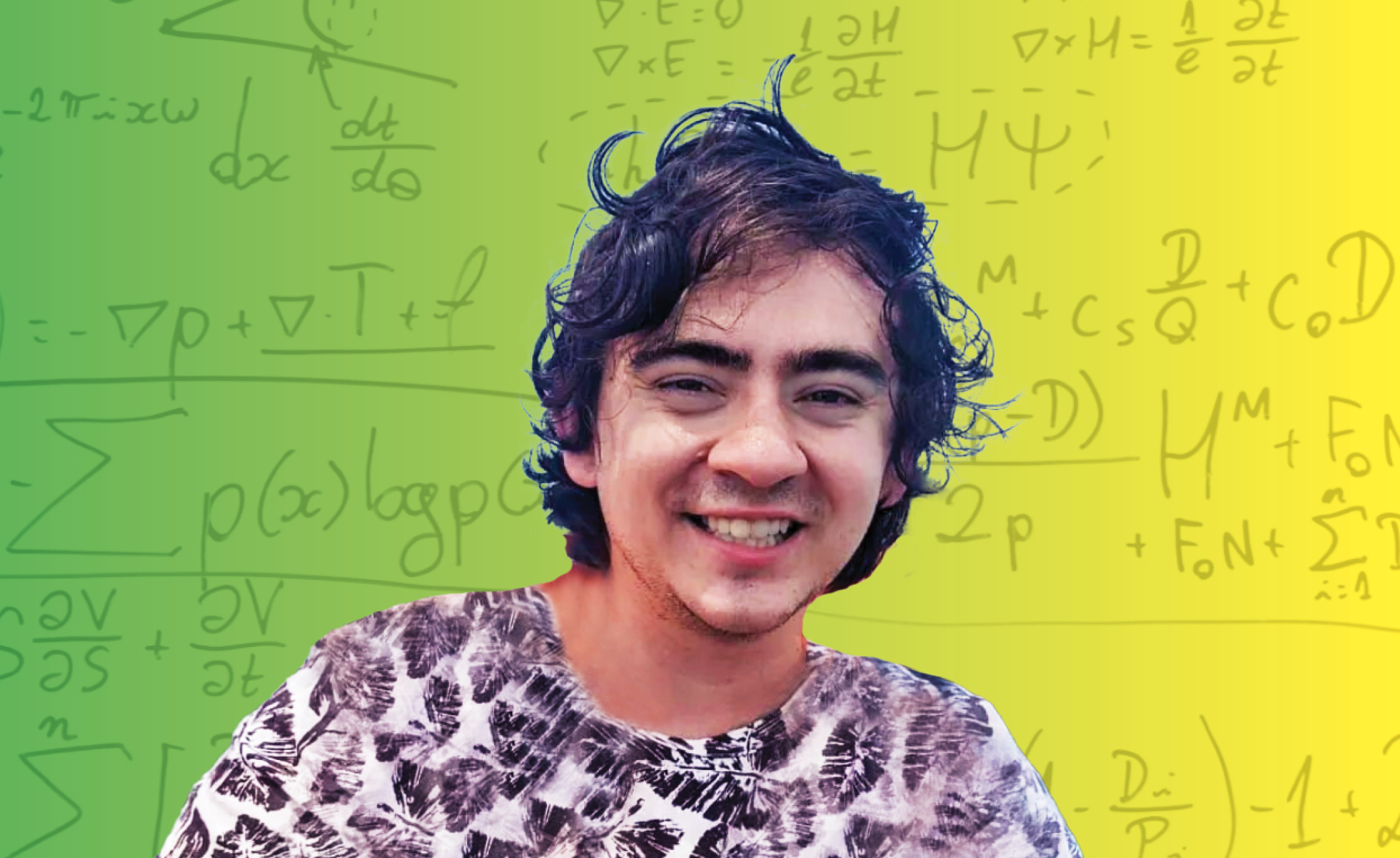Sharing the Life-Changing Power of Math
-
-
Slice of MIT

When José Esparza Lozano ’19 arrived at MIT, one of the first things he noticed was the students who participated in math olympiad competitions. Growing up in Ciudad Juárez, Mexico, he had dabbled in math competitions, but not at their level. He admired their confidence and preparation. They worked hard and excelled, and in return they were offered more and bigger opportunities.
That impression stayed with him throughout his time at the Institute and even past graduation. After earning his bachelor’s in math from MIT and a master’s in math from University of Michigan, Esparza is spending a year in Rwanda helping build out the country’s math olympiad team, with the aim of using math as a tool for development.
Growing up on the US border, “you end up seeing the world in a different way,” Esparza says. Based on his observations, Esparza felt that neighboring El Paso was safer than his hometown and offered more to young people growing up there; he decided early on that he would work to narrow the gap for kids like him.
As part of his math studies, he traveled to Ghana with MIT International Science and Technology Initiatives during his senior year to work on a project focused on the power of teacher training and its effect on education and, indirectly, development. That program mostly focused on science, but Esparza helped write new math materials, thinking of what math olympiad teams and competitions were doing for his MIT classmates. This type of competition “makes you really sharp,” he says. “It changes your life, I think.”
After a couple years of false starts during the Covid-19 pandemic, Esparza returned to the African continent this year to work at the African Institute for Mathematical Sciences in Rwanda, helping train its math olympiad team. The competition’s structure is fairly conventional: Teams spend two days solving three problems per day, drawn from areas including algebra, geometry, and number theory, and showing their work through proofs. Training is similar to how teams train at MIT, combining theory with problem sets and mixing in-person and remote learning.
It’s the overall goal of the program that differs in some ways from math competitions in the developed world. Esparza is working with a group whose research has shown correlations between olympiad performance and later outcomes in life. His work is therefore about more than just improving team performance; he’s hoping the positive effects ripple out into the community. In fact, his role focuses on training coaches specifically to maximize impact—with the idea that one teacher or coach doing their job well has the potential to affect many more students’ performances than just those they are teaching directly.
The hoped-for positive outcomes have already begun. So far, Esparza estimates that he’s worked with about a dozen coaches and, along with his colleagues, run camps for 200 students and helped implement a national exam that has reached some 20,000 people. Many students from the program have migrated to new opportunities in Europe, Asia, and the US. One student got a scholarship to study nuclear engineering in Russia, and then another scholarship to study at Cambridge University in the United Kingdom. Four have even been accepted at MIT.
But Esparza sees his connections with coaches and students who choose to stay to study and live in Rwanda to be just as important as with those who leave for international opportunities—in part because of the deep impact those who stay can have doing their own slice of good locally. Next year, he plans to return to the United States to finish his PhD and continue combining economics, math, and international collaboration in a lab or classroom. But he’s confident the program will roll on without him. “The coaches that stayed are really committed to keeping things going,” he says.
The work the coaches put in ensures their students are more confident and supports the creation of strong, proudly nerdy friendships and expanded worldviews. Esparza says that even students that don’t go on to study math come away changed. “They start thinking about bigger things. They start thinking about the world, how they can work with people from other countries and push themselves to be better.”
Photo illustration: Mary Zyskowski; images courtesy of José Esparza Lozano and iStock.com/NiseriN.

